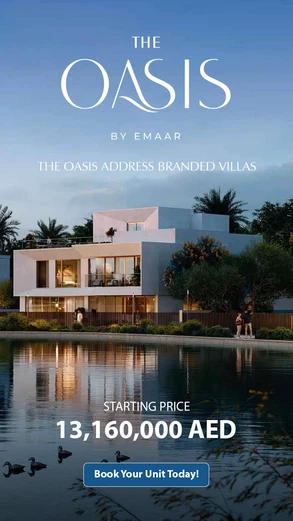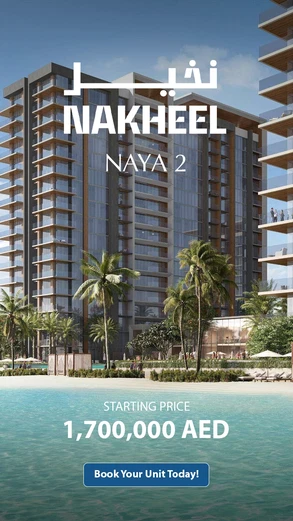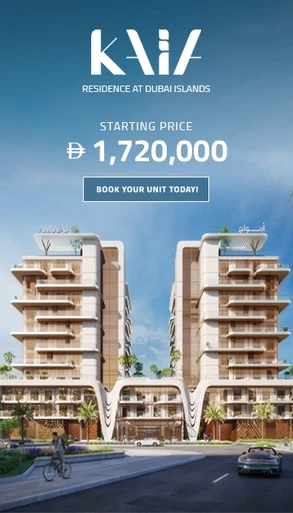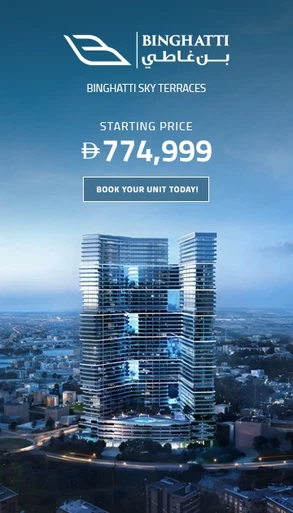UAE’s continuous growth in tourism, real estate, and business has stimulated the interest of expats seeking a secure settling and investment option. What could be better than the city of Dubai? A city with opportunities and benefits, particularly in the real estate sector, will soon become a global leader in the same field.
Besides the advantageous property investment options, investors are now eyeing the variety of mortgage and home loan options tailored to attract several foreign investors in the city. UAE's dynamic and well-regulated real estate sector has provided residents and non-residents access to its financial products at the lowest interest rates.
This makes property purchases less straining and more appealing than property purchases in other prominent cities worldwide. Due to the unfamiliarity of expats with UAE’s mortgage rules and regulations, navigation of the mortgage landscape can be complicated.
This guide has been compiled to familiarize you with loan acquisition in UAE for ex-pats, mortgage loan options, and current home loan interest rates.

Mortgage and Home Loans for Non-Residents: A Possibility or Not?
Whether you are an expat looking to purchase your dream home or a non-resident seeking to invest in the Dubai real estate sector, home loan and mortgage options are available in UAE for both.
However, the process of acquiring such a loan may involve certain intricacies compared to the one acquired as a UAE resident. Though the options are limited, the results are fruitful, so thoroughly overview the guide to comprehend the process and eligibility criteria.
Eligibility Criteria for Acquiring Home Loans in UAE for Expats
As an expat, to be eligible for a mortgage in Dubai, you will usually need a residency visa, a stable employment history, and a minimum monthly salary of AED 15,000. Properties worth up to AED 5,000,000 typically require a 25% deposit.
How an Expat Can Get a Mortgage in Dubai?
- Residency Status: Expats need a valid UAE residency visa to qualify for a mortgage.
- Age Requirement: Most applicants are between 21 and 65 years old, but some banks may also have a specific age limit.
- Income Criteria: Salaried applicants must provide proof of a monthly income of at least AED 15,000. The monthly income for self-employed persons is generally expected to be higher at approximately AED 25,000.
- Deposit Requirements: For properties above AED 5,000,000, a minimum down payment of 25% applies. The down payment might go up to 30%.
- Credit Score: A strong credit score and a low debt-to-income ratio are also vital. Banks may need credit reports from the applicant’s country of origin.
- Documentation: The applicants must submit their valid passports, bank statements, proof of income, and employment details.
- Property Eligibility: If the bank has provided you with a list of approved property developers/projects, make sure the property you want to buy is on this list.
Types of Home Loans or Mortgage in Dubai Available for Expats
UAE has a well-reputable mortgage market with a dozen foreign and local mortgage providers operating in the city. The two primary categories of mortgages are specified for ex-pats, each catering to diverse financial conditions and needs. The two types are;
1. Variable-Rate Mortgages
Variable-rate mortgages, also called " adjustable-rate mortgages (ARMs),” have changing interest rates based on the benchmark interest rate performance.
This specifically means that the mortgage will begin at lower rates than that of fixed-rate mortgages but will readily vary with market conditions.
This periodic change will make it a less predictable option; however, the interest rates prove to be better than fixed-rate mortgages.
Variable-rate mortgages prove to be a viable option for expats anticipating a decrease in interest rates. Nonetheless, they also involve the risk of increased repayments in case of rising market rates.
2. Fixed-Rate Mortgages
In fixed-rate mortgages, the time period and the interest rate are usually settled between the lender and the borrower. The period varies between 1 and 10 years and maintains predictability and stability due to the constant repayment plan throughout the fixed period.
This type of mortgage is specifically advantageous for expats, who have a clear direction of their financial commitment, which, in turn, reduces the strain of interest rate fluctuations with time.
Factors Affecting Rates
a) Applicant's Credit Score
A higher credit score, representing a lower risk to lenders, can translate into better interest rates. A well-defined credit score, like the UAE credit score, is usually calculated through the Al Etihad Credit Bureau (AECB).
Impact on Rates
Those with higher credit scores (above 700) might get better interest rates, whereas those with lower credit scores (below 600) may pay more or find it challenging to obtain a mortgage.
b) Amount of Down Payment
The LTV ratio is highly dependent on the amount of the down payment. A larger down payment lowers your risk to the lender, allowing you to access lower rates. Ex-pats' standard minimum down payment is 25 percent on a property worth up to AED 5 million and 30 percent above that.
Impact on Rates
Higher down payments (like 30% or more) can also mean a lower interest rate because the lender is on the hook for less of a loan (and thus less risk).
c) Property Type and Value
Interest rates might vary depending on the type of properties (residential, commercial, off-plan, or ready properties). Some types of property contain a higher risk by lenders, which may impact the interest rate they are willing to offer. Higher-value properties may also lend themselves to different lending criteria and rates.
Documents for Acquiring Home Loans in UAE for Non-Residents
The requirement of documentation varies from bank to bank. However, the general paperwork required include;
- A valid Passport
- Proof of a stable income (may include pay slips or salary certificates)
- Proof of a tax return (required for creditworthiness)
- Audited financial statements or business licenses (in case of a self-employment condition)
- Bank statements (for determining the affordability of mortgage repayments)
- Information on existing loans (if any)
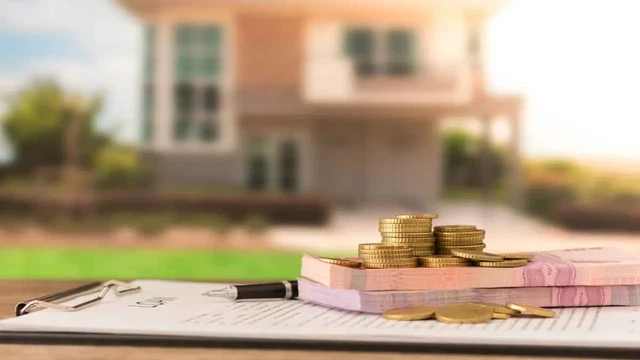
Application Process of Getting Home Loans in Dubai
Applying for a home loan in Dubai as an expat requires several steps to complete the arrangement, from prerequisite inquiries to final approval and disbursement. Let’s get to the step-by-step guide for a detailed home loan application process for ex-pats:
1. Pre-Approval
After selecting an appropriate bank to arrange a mortgage, the next big task is to obtain a pre-approval letter to finalize the property purchase in Dubai.
A pre-approval letter is necessary to show sellers that you are a potential buyer. It also aids in setting a realistic budget and estimating the amount of loan an individual can borrow based on financial conditions.
2. Documentation
Once the bank pre-approval letter is extended, the applicant can then submit the necessary documents to support their mortgage application. You can find the list of required documents in the above section.
3. Property Valuation
The selected property must be professionally valued to discover its worth in the current market. Financial institutions or relative banks usually help applicants with proper property valuation to align it with the requested loan amount. Proportionate property valuation protects both the interests of the lender and the borrower.
4. Final Approval and Disbursement
After completing the documentation submission and property valuation steps, the related bank or institution will review the application. Once approved, the mortgage will be issued, leading to the lender's final disbursement of funds.
In UAE, the entire process is typically completed within several weeks. However, the intricacy of certain factors and the lender’s work pace may affect the duration of the work.
Home Loan Interest Rates in Dubai for Expats
Interest rates on home loans for non-residents or expats change based on the loan amount, lender, and the borrower's financial profile in Dubai. The key factors influencing the interest rates are categorized below;
1. Loan Amount and Term
The term of reimbursement and the loan amount crucially impact interest rates. Generally, shorter terms and larger loan amounts attract lower interest rates, whereas longer terms and smaller loan amounts attract higher rates of interest.
2. Varying Amount Rates
The amount of the loan provided also varies from one bank to another. For instance, Abu Dhabi Commercial Bank finances a loan worth AED 15 million, while Mashreq Bank supports a loan worth AED 10 million.
3. Loan-to-Value Ratio (LTV)
The LTV Ratio is the percentage of the property’s value, which the bank is inclined to finance. Expats should look for a high down payment to gain a favorable interest rate from the banks, as interest rates will be minimized if a lower LTV ratio is claimed.
More often, the banks have already specified the criteria to restrain any ambiguities. For instance, properties valued at AED 5 Million require a 20% down payment from the applicants, and properties valued more than AED 5 million need a 30% down payment from the borrowers. This indicates a lower risk for the lender.
4. Credit Score
Banks will offer low interest rates if the applicant’s credit score is high. Expats with commendable credit histories in their home country and the UAE receive beneficial interest rate gains.
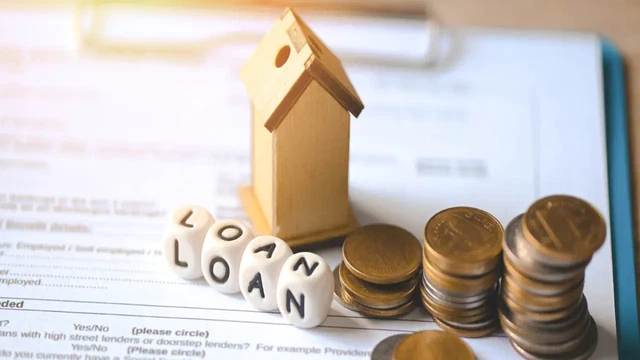
Home Loans Providers in UAE
As stated above, only a few banks and financial institutions extend mortgage and home loans for expats and non-residents in UAE. Here is a list of eminent trustable providers in Dubai:
1. Emirates NBD
Emirates NBD is a reputable bank that provides a variety of home loan services for expats. Their flexible repayment terms, competitive interest rates, and personalized services to meet expats’ needs make it stand out among other banks in Dubai.
2. Standard Chartered
Standard Chartered offers a range of mortgage solutions for non-residents and expats in Dubai. Their prominent mortgage products include investment property loans and home loans at competitive rates. Moreover, the bank believes in a streamlined application process to speed up the approval process.
3. HSBC
HSBC has specifically designed types of mortgages for expats in UAE, including variable-rate and fixed-rate mortgages. The bank is known to have a strong presence and expertise in the global banking sector, making it a preferred option for expat clientele.
4. Mashreq Bank
Another expat-friendly mortgage provider in UAE, Mashreq Bank, has tailored flexible reimbursement options and appealing interest rates. The bank typically extends mortgage services to both self-employed and salaried ex-pats, making it a popular choice among diverse borrower demographics with secure financing options.
Additional Considerations
While looking for a mortgage arrangement to finance your property purchase in Dubai as an expat, an individual must keep in mind additional charges that may come hidden with the financing solutions. The additional fees include;
- Loan Protection Insurance: A mortgage life insurance is a requisite before settling into proper mortgage financing.
- Registration Fee: Borrowers have to pay 0.25% of the total mortgage value of their property.
- Bank Charges: The bank supporting the specific mortgage will require their processing fee, insurance registration fee, and property valuation fee from the borrowers.
Benefits of Securing Home Loans in Dubai
Securing a mortgage provides various benefits to both non-residents and expats. A few of the key advantages are highlighted below;
1. Access to Competitive Interest Rates
In Dubai's dynamic market, the mortgage landscape is decently tailored in cooperation with various financial institutions and banks. Expats can take advantage of appealing interest rates to secure favorable loan terms. For instance, ADCB offers a 4.50% interest rate to non-residents and finances 50% of the total property.
2. Investment Potential
UAE’s record-breaking real estate market growth demonstrates a potential investment opportunity. Over 16,000 transactions were observed in July 2023, setting a new benchmark in property sales, which reached AED 50 billion in the same month.
Expats can also benefit from the lucrative investment and capital appreciation opportunities by securing a home loan to finance their purchase in Dubai.
3. Flexible Repayment Options
Many financial institutions and banks offer flexible reimbursement plans, enabling an adequate option that aligns with the borrower’s financial profile. This flexibility allows for easier management of mortgage commitments.
Closing In
One needs to thoroughly understand the mortgage and home loan landscape in Dubai. The situation may sometimes be challenging, specifically if the borrower is a non-resident or expat due to direct involvement in the Dubai property market and the least familiarity.
Therefore, navigating the types of home loans, application process, reputable banks, and eligibility criteria will help you cope with getting your process done quickly.
Dubai’s extensive documentation requirements and intricate inquiries may seem tiring, but the market is certainly worth investing in.
The City of Opportunities guarantees flexible reimbursement options, competitive interest rates, and investment potential to make your investment worthwhile.
Whether you desire to join Dubai’s thriving real estate market or are searching for a dream home in a gigantic city, this guide provides essential information to embark on your property ownership journey while ensuring fruitful results.
Explore More...


